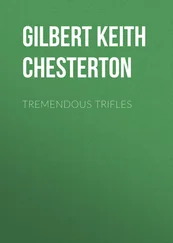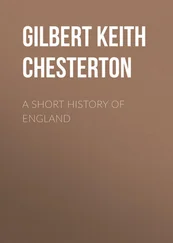Gilbert Chesterton - Manalive
Здесь есть возможность читать онлайн «Gilbert Chesterton - Manalive» весь текст электронной книги совершенно бесплатно (целиком полную версию без сокращений). В некоторых случаях можно слушать аудио, скачать через торрент в формате fb2 и присутствует краткое содержание. Год выпуска: 1912, Издательство: Thomas Nelson and Sons, Жанр: Классическая проза, на английском языке. Описание произведения, (предисловие) а так же отзывы посетителей доступны на портале библиотеки ЛибКат.
- Название:Manalive
- Автор:
- Издательство:Thomas Nelson and Sons
- Жанр:
- Год:1912
- ISBN:нет данных
- Рейтинг книги:3 / 5. Голосов: 1
-
Избранное:Добавить в избранное
- Отзывы:
-
Ваша оценка:
- 60
- 1
- 2
- 3
- 4
- 5
Manalive: краткое содержание, описание и аннотация
Предлагаем к чтению аннотацию, описание, краткое содержание или предисловие (зависит от того, что написал сам автор книги «Manalive»). Если вы не нашли необходимую информацию о книге — напишите в комментариях, мы постараемся отыскать её.
Manalive — читать онлайн бесплатно полную книгу (весь текст) целиком
Ниже представлен текст книги, разбитый по страницам. Система сохранения места последней прочитанной страницы, позволяет с удобством читать онлайн бесплатно книгу «Manalive», без необходимости каждый раз заново искать на чём Вы остановились. Поставьте закладку, и сможете в любой момент перейти на страницу, на которой закончили чтение.
Интервал:
Закладка:
“‘No,’ I answered after due reflection, ‘I don’t think I should accept that.’
“‘Ah,’ he said with a sort of a sigh, ‘then you have explained a second thing to me.’
“‘What do you mean?’ I asked; ‘what thing?’
“‘Why your revolution has failed,’ he said; and walking across quite suddenly to the train he got into it just as it was steaming away at last. And as I saw the long snaky tail of it disappear along the darkening flats.
“I saw no more of him. But though his views were adverse to the best advanced thought, he struck me as an interesting person: I should like to find out if he has produced any literary works.–Yours, etc.,
“Paul Nickolaiovitch.”There was something in this odd set of glimpses into foreign lives which kept the absurd tribunal quieter than it had hitherto been, and it was again without interruption that Inglewood opened another paper upon his pile. “The Court will be indulgent,” he said, “if the next note lacks the special ceremonies of our letter-writing. It is ceremonious enough in its own way:–
“The Celestial Principles are permanent: Greeting.–I am Wong-Hi, and I tend the temple of all the ancestors of my family in the forest of Fu. The man that broke through the sky and came to me said that it must be very dull, but I showed him the wrongness of his thought. I am indeed in one place, for my uncle took me to this temple when I was a boy, and in this I shall doubtless die. But if a man remain in one place he shall see that the place changes. The pagoda of my temple stands up silently out of all the trees, like a yellow pagoda above many green pagodas. But the skies are sometimes blue like porcelain, and sometimes green like jade, and sometimes red like garnet. But the night is always ebony and always returns, said the Emperor Ho.
“The sky-breaker came at evening very suddenly, for I had hardly seen any stirring in the tops of the green trees over which I look as over a sea, when I go to the top of the temple at morning. And yet when he came, it was as if an elephant had strayed from the armies of the great kings of India. For palms snapped, and bamboos broke, and there came forth in the sunshine before the temple one taller than the sons of men.
“Strips of red and white hung about him like ribbons of a carnival, and he carried a pole with a row of teeth on it like the teeth of a dragon. His face was white and discomposed, after the fashion of the foreigners, so that they look like dead men filled with devils; and he spoke our speech brokenly.
“He said to me, ‘This is only a temple; I am trying to find a house.’ And then he told me with indelicate haste that the lamp outside his house was green, and that there was a red post at the corner of it.
“‘I have not seen your house nor any houses,’ I answered. ‘I dwell in this temple and serve the gods.’
“‘Do you believe in the gods?’ he asked with hunger in his eyes, like the hunger of dogs. And this seemed to me a strange question to ask, for what should a man do except what men have done?
“‘My Lord,’ I said, ‘it must be good for men to hold up their hands even if the skies are empty. For if there are gods, they will be pleased, and if there are none, then there are none to be displeased. Sometimes the skies are gold and sometimes porphyry and sometimes ebony, but the trees and the temple stand still under it all. So the great Confucius taught us that if we do always the same things with our hands and our feet as do the wise beasts and birds, with our heads we may think many things: yes, my Lord, and doubt many things. So long as men offer rice at the right season, and kindle lanterns at the right hour, it matters little whether there be gods or no. For these things are not to appease gods, but to appease men.’
“He came yet closer to me, so that he seemed enormous; yet his look was very gentle.
“‘Break your temple,’ he said, ‘and your gods will be freed.’
“And I, smiling at his simplicity, answered: ‘And so, if there be no gods, I shall have nothing but a broken temple.’
“And at this, that giant from whom the light of reason was withheld threw out his mighty arms and asked me to forgive him. And when I asked him for what he should be forgiven he answered: ‘For being right.’
“‘Your idols and emperors are so old and wise and satisfying,’ he cried, ‘it is a shame that they should be wrong. We are so vulgar and violent, we have done you so many iniquities– it is a shame we should be right after all.’
“And I, still enduring his harmlessness, asked him why he thought that he and his people were right.
“And he answered: ‘We are right because we are bound where men should be bound, and free where men should be free. We are right because we doubt and destroy laws and customs– but we do not doubt our own right to destroy them. For you live by customs, but we live by creeds. Behold me! In my country I am called Smip. My country is abandoned, my name is defiled, because I pursue around the world what really belongs to me. You are steadfast as the trees because you do not believe. I am as fickle as the tempest because I do believe. I do believe in my own house, which I shall find again. And at the last remaineth the green lantern and the red post.’
“I said to him: ‘At the last remaineth only wisdom.’
“But even as I said the word he uttered a horrible shout, and rushing forward disappeared among the trees. I have not seen this man again nor any other man. The virtues of the wise are of fine brass.
“Wong-Hi.”“The next letter I have to read,” proceeded Arthur Inglewood, “will probably make clear the nature of our client’s curious but innocent experiment. It is dated from a mountain village in California, and runs as follows:–
“Sir,–A person answering to the rather extraordinary description required certainly went, some time ago, over the high pass of the Sierras on which I live and of which I am probably the sole stationary inhabitant. I keep a rudimentary tavern, rather ruder than a hut, on the very top of this specially steep and threatening pass. My name is Louis Hara, and the very name may puzzle you about my nationality. Well, it puzzles me a great deal. When one has been for fifteen years without society it is hard to have patriotism; and where there is not even a hamlet it is difficult to invent a nation. My father was an Irishman of the fiercest and most free-shooting of the old Californian kind. My mother was a Spaniard, proud of descent from the old Spanish families round San Francisco, yet accused for all that of some admixture of Red Indian blood. I was well educated and fond of music and books. But, like many other hybrids, I was too good or too bad for the world; and after attempting many things I was glad enough to get a sufficient though a lonely living in this little cabaret in the mountains. In my solitude I fell into many of the ways of a savage. Like an Eskimo, I was shapeless in winter; like a Red Indian, I wore in hot summers nothing but a pair of leather trousers, with a great straw hat as big as a parasol to defend me from the sun. I had a bowie knife at my belt and a long gun under my arm; and I dare say I produced a pretty wild impression on the few peaceable travellers that could climb up to my place. But I promise you I never looked as mad as that man did. Compared with him I was Fifth Avenue.
“I dare say that living under the very top of the Sierras has an odd effect on the mind; one tends to think of those lonely rocks not as peaks coming to a point, but rather as pillars holding up heaven itself. Straight cliffs sail up and away beyond the hope of the eagles; cliffs so tall that they seem to attract the stars and collect them as sea-crags collect a mere glitter of phosphorous. These terraces and towers of rock do not, like smaller crests, seem to be the end of the world. Rather they seem to be its awful beginning: its huge foundations. We could almost fancy the mountain branching out above us like a tree of stone, and carrying all those cosmic lights like a candelabrum. For just as the peaks failed us, soaring impossibly far, so the stars crowded us (as it seemed), coming impossibly near. The spheres burst about us more like thunderbolts hurled at the earth than planets circling placidly about it.
Читать дальшеИнтервал:
Закладка:
Похожие книги на «Manalive»
Представляем Вашему вниманию похожие книги на «Manalive» списком для выбора. Мы отобрали схожую по названию и смыслу литературу в надежде предоставить читателям больше вариантов отыскать новые, интересные, ещё непрочитанные произведения.
Обсуждение, отзывы о книге «Manalive» и просто собственные мнения читателей. Оставьте ваши комментарии, напишите, что Вы думаете о произведении, его смысле или главных героях. Укажите что конкретно понравилось, а что нет, и почему Вы так считаете.









